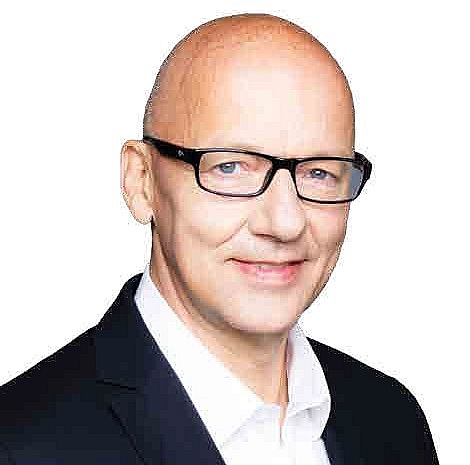Expected deal shakes up hospitality
 |
| The potential merger between Accor and IHG would create the largest hospitality group in the world |
The move, according to industry insiders, has been caused mostly by the coronavirus which has seriously devastated the hotel industry, with absent tourists and the subsequent shutdowns of many hotels.
If the merger is realised, the combination of Accor and InterContinental Hotels Group (IHG) would create the largest hospitality corporation in history. The new combined group would have 1.6 million rooms, or around 200,000 rooms more than Marriott International, the current industry leader.
Meanwhile on August 25, Service Properties Trust (SVC), a real estate investment trust which owns a diverse portfolio of hotels, net lease services, and necessity-based retail properties across the United States, Puerto Rico, and Canada, announced that it will transfer the branding and management of 103 hotels to Sonesta International Hotels Corporation from IHG.
Previously SVC, which boasts 149 distinct brands across 23 industries, sent notice of termination to IHG for failure to pay minimum returns and rents due for July and August totalling $26.4 million, plus accrued interest, and IHG had until August 24 to avoid termination by making payments.
“SVC did not receive any payment from IHG by August 24, nor do we expect to receive any payments from IHG in the future, and the management agrees with the terminations. The effective date of the termination is November 30, which is the same date that SVC currently plans to transfer the branding and management of these hotels to Sonesta,” according to SVC’s statement.
SVC president and CEO John Murray said, “SVC and IHG have had a long relationship, but we were unable to reach a mutually agreeable resolution. Therefore, after a period of negotiations with IHG, we are determined to terminate these contracts and rebrand these hotels with Sonesta. Based on experience, we believe the current portfolio of 103 hotels may perform as well, or even better, once Sonesta’s new hotels stabilise in their respective markets.”
Both Accor and IHG have reportedly discussed a deal internally. However, high ranking officials from both two sides refused to make any comments on the deal when being contacted by VIR.
Nevertheless, Patrick Basset, Accor’s COO for Upper Southeast & Northeast Asia and the Maldives, told VIR that as of August 24, 4,200 of the group’s hotels (83 per cent) are currently operating.
Despite these strong figures, Accor also suffered under the pandemic as Basset stated that “revenue per available room was down 59.3 per cent in the first-half of 2020, which resulted in a net loss of €1.5 billion.”
This marked decline reflects the dramatic deterioration in the industry linked to the spread of the virus worldwide, as well as lockdown measures and border closures implemented by governments.
Basset reaffirmed though that the group is observing signs of recovery in all regions, after a particularly hard period in April and May.
“We enjoy a strong and sound balance sheet – our liquidity position exceeds €4 billion ($4.7 billion) and we did a lot to protect both earnings and liquidity. Accor has a well-balanced portfolio, a global footprint, and remains an attractive partner – and we are still adding new hotels, with 12,000 new rooms being added in the first half of 2020,” he added.
Talking to VIR, Rajit Sukumaran, IHG’s managing director for South East Asia and South Korea, admitted it is a challenging time for the hotel industry. “We’ve been focusing on responding to COVID-19 in the best way we can on every front. Trading is tough globally since we saw demand fall quickly in March. We are now seeing progress with the reopening of our hotels around the world and we’re doing everything we can to emerge from this period in the strongest possible position,” Sukumaran said.
Adam Bury, executive vice president at JLL Hotels & Hospitality Group, said that the hospitality industry is one of the more fragmented sectors across the world.
The top five hotel companies have an approximate 26 per cent market share. By way of example, this compares to the beer industry where the top five groups have an approximate 60 per cent market share or the top five car rental businesses which sit at over 90 per cent.
“While it may be too soon to say if the Accor/IHG deal will be completed, and neither side have made any official comment, there are obvious synergies which would create the biggest hotel company in the world. The most obvious may be the distribution of rooms – with IHG having a strong presence in the US and China, whilst Accor is the leader outside of these markets, including in Vietnam,” Bury said.
Based in France, Accor currently offers around 5,000 hotels in 110 countries, with 60 per cent of its portfolio in Asia. Meanwhile IHG currently has nearly 6,000 hotels globally, offering some 883,000 rooms.
While giant hoteliers are fluctuating in the global market, Vietnam’s hotel and tourism industry remains positive under the eyes of property consultants. According to CBRE Vietnam, while COVID-19 will have far-reaching and dramatic implications on the hotel landscape of tomorrow, the long-term outlook for Vietnam’s hotel sector remains positive, thanks to expected improvement in infrastructure, favourable visa policies, and political stability.
Vietnam has been praised by the international community for its decisive and effective efforts in the containment of COVID-19, which would help the country to enhance its image on the global tourism scene as one of the safest travel destinations once the pandemic is over.
Regarding the investment landscape, there are some opportunistic investors looking for distressed assets at a big discount. However, the market so far has not seen many distressed assets in the 4- and 5-star segments.
There will be more opportunities in the lower segments though, as well as from hotel chain owners seeking to divest some assets that are considered less strategic.
| Patrick Basset - COO, Upper Southeast & Northeast Asia and the Maldives, Accor
As the crisis arose, Accor took immediate and drastic measures to mitigate the impact on its earnings. They included a €60 million ($71 billion) annual cost savings programme which was already 60 per cent achieved by end of June, as well as a sharp reduction in other operating costs. In a second phase, the group also reviewed its organisation in order to shift to an asset-light company. This will lead to the implementation of a €200 million ($237 million) recurring cost saving plan. We are proactively engaged in preparing for the end of the confinement and the recovery, working alongside national health and governmental authorities in the regions which are still in lockdown. Accor and its partners have been mobilised ever since the beginning of the crisis to support their communities all around the world. The dedication and the solidarity of our partners during this period has been exemplary. This is particularly impressive because of how hard it has impacted them, right at the core of their lives and businesses. We are proud to be working with them to mitigate the impact of the crisis. Rajit Sukumaran - Managing director South East Asia & Korea, IHG
Since many restrictions have been lifted in Vietnam, the majority of our hotels are open and we have been seeing demand from travellers, especially in our resort locations. The strength of hybrid hotel via serviced apartment model was also seen during this time as many serviced apartment guests stayed with us throughout this entire period. Our hotels have been creative during this period to drive new revenue streams such as outside catering, takeaways, home-based activities, and changing room service menus to cater to different tastes. Traditional business-centric hotels have strived to offer honeymoon or family packages. We believe there is pent up demand for leisure and business travel once markets reopen and our teams are ready to welcome back guests when they are ready to travel again. We continue to grow our estate and have 15 hotels in the pipeline which will open in the next three to five years. With the positive outlook towards foreign-direct investment that analysts expect for Vietnam after the pandemic, we see an accelerated growth of industrial economic zones as a result – a sector that IHG continues to be keen on expanding. Adam Bury - EVP and Investor Sales Asia, JLL Hotels & Hospitality Group
We have seen a growing trend of consolidation over recent years, with notable examples including acquisition of Mantra by Accor in Asia-Pacific, a deal negotiated by JLL, and the mega merger of Marriott and Starwood. We expect this trend to continue and potentially accelerate, enabling companies to achieve organic growth and work efficiently, while lowering cost of distribution and providing an enhanced guest experience, particularly through enlarged loyalty programmes. The pandemic will inevitably impact some hotel owners, who may have higher leverage, limited cash reserves, and exposures across multiple assets and industries. As a result, some will need to look at rationalising their portfolios, which will potentially include strategic sales of non-core assets and possible distressed sales where financial obligations can no longer be met. Ultimately, the Asian travel sector will rebound strongly, given that the massive middle class within the region which is just beginning to travel. Countries such as India, Indonesia, and Vietnam, which have huge populations, will add to the substantial demand which already exists. |
What the stars mean:
★ Poor ★ ★ Promising ★★★ Good ★★★★ Very good ★★★★★ Exceptional
Related Contents
Latest News
More News
- Foreign leaders extend congratulations to Party General Secretary To Lam (January 25, 2026 | 10:01)
- 14th National Party Congress wraps up with success (January 25, 2026 | 09:49)
- Congratulations from VFF Central Committee's int’l partners to 14th National Party Congress (January 25, 2026 | 09:46)
- 14th Party Central Committee unanimously elects To Lam as General Secretary (January 23, 2026 | 16:22)
- Worldwide congratulations underscore confidence in Vietnam’s 14th Party Congress (January 23, 2026 | 09:02)
- Political parties, organisations, int’l friends send congratulations to 14th National Party Congress (January 22, 2026 | 09:33)
- Press release on second working day of 14th National Party Congress (January 22, 2026 | 09:19)
- 14th National Party Congress: Japanese media highlight Vietnam’s growth targets (January 21, 2026 | 09:46)
- 14th National Party Congress: Driving force for Vietnam to continue renewal, innovation, breakthroughs (January 21, 2026 | 09:42)
- Vietnam remains spiritual support for progressive forces: Colombian party leader (January 21, 2026 | 08:00)




 Tag:
Tag:




















 Mobile Version
Mobile Version